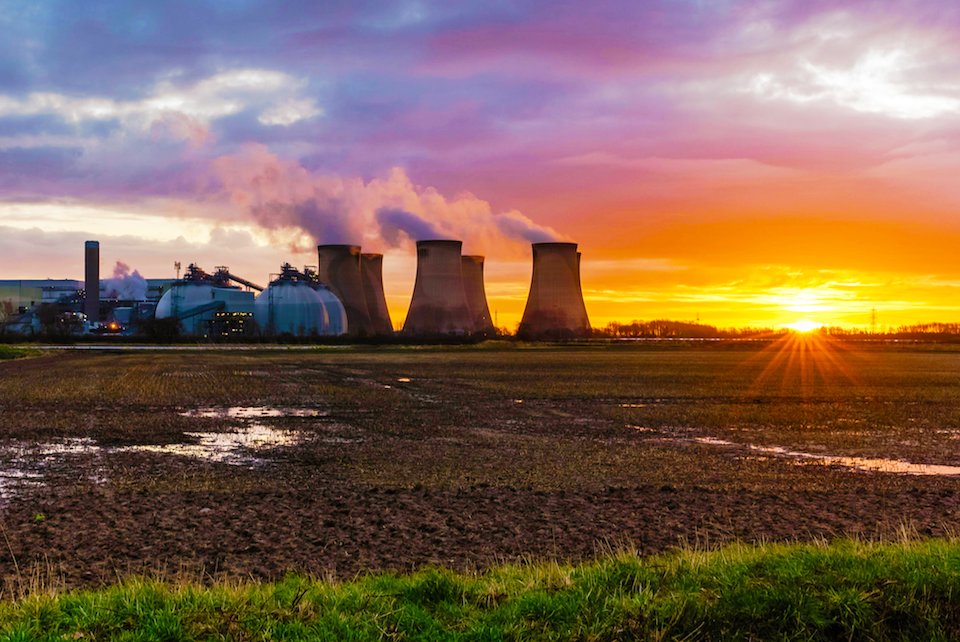British freight carrier DB Cargo UK has been an early adopter of alternative fuels. With their large fleet of diesel locomotives, that may well have a good economic case. The distinctively red-liveried operator is an eager environmentalist as well. Now, the company has stated it will combine its green credentials with its deliveries to Britain’s self-styled green power generating complex at Drax in Yorkshire.
DB Cargo UK has said that all trains it operates for Drax Group in and out of the UK’s largest renewable energy plant near Selby, Yorkshire, will be powered by environmentally friendly Hydro-treated Vegetable Oil (HVO). This is a switch from diesel – a project that DB Cargo has been pursuing for some time. The power station complex in the north of England generates around eight per cent of all electricity for the UK and is powered by a constant supply of biomass delivered by train from ports around the north of England. Infrastructure in the region is not fully electrified.
4.5 million tonnes of biomass
Drax is a name in the UK, synonymous with the huge cooling towers of the power station complex, easily visible from the East Coast Main Line, and dominating the landscape around Selby in Yorkshire. The complex was built in the 1960s to take advantage of the cool reserves and colliers in the area. It has been rail-served since day one. However, in recent years, the power station has been gradually converted to burn biomass – a processed form of wood pulp – which is delivered by modified trains using repurposed coal wagons (a speciality of UK rolling stock manufacturer WH Davis).

Drax Group, the UK’s leading producer of renewable energy, has decided to switch to fully renewable fuel as part of its ongoing programme to reduce its carbon footprint. That’s a big job for rail freight. DB Cargo UK currently transports around 4.5 million tonnes of biomass pellets to Drax Power Station each year, operating around 60 trains a week—approximately 3,000 trains a year—to the site.
HVO is a win-win for carrier and consumer
Despite the obvious advantages of using dedicated rail freight to transport the fuel to the site, there remains the environmental anomaly of burning fossil fuel (diesel) to deliver a sustainable feedstock to the power station. DB Cargo has, therefore, been experimenting with HVO for some time and is now in a position to switch operations to the fuel. DB Cargo estimates that switching from traditional red diesel to HVO will reduce rail freight carbon emissions by up to 90 per cent, saving over 12,000 tonnes of carbon each year. Based on figures from the UK Government’s Greenhouse Gas Equivalencies Calculator, that is equivalent to 30 million miles (48 million kilometres) of car journeys.
“The Government had set the rail industry a stretching target to achieve net zero carbon emissions by 2050 and remove all diesel-only traction by 2040,” said Roger Neary, DB Cargo UK’s Chief Sales Officer. He said the decision by Drax to adopt the use of HVO in its trains was a win-win for both companies. “The use of HVO in our trains will go a long way to helping us meet that challenge. At the same time, it will help Drax meet its own sustainability targets and minimise its impact on the environment.
Committed to rail freight
Rail freight is critical to the power station’s supply chain, transporting large volumes of biomass pellets to the plant, which produces around 8 per cent of the UK’s renewable power. The adoption of HVO is an interim measure, if Roger Neary has his calls for electrification answered. “Until a firm commitment is made to [complete] electrification of the UK network, HVO is the only credible solution to rail freight decarbonisation,” he said. “More services could be operated with HVO if the right policies and incentives were in place to enable more customers to make the switch.”

The management of Drax already recognises that rail freight is the only viable way of supplying the station’s voracious appetite. The switch to less-dense biomass products for feedstock means the complex requires even more wagon loads to be delivered. Bruce Heppenstall, Plant Director at Drax Power Station, said rail freight was already a more sustainable method of transporting the pellets than by road, taking some 192,000 heavy goods vehicles off the UK’s network each year. “Drax Power Station uses high volumes of biomass to keep the lights on for millions of homes across the UK. Rail freight is a cleaner and greener option for transporting this material, and our partnership with DB Cargo prevents thousands of additional journeys by HGVs across the UK’s road network.”
The DB Cargo trains powered on HVO will provide around 57 per cent of Drax’s total biomass, helping enough renewable electricity to power almost 2.3m homes, equivalent to all of the households in Yorkshire and the Humber region. HVO is marketed as one of the world’s purest and greenest fuels. It is synthetically made through the hydro-treatment process from vegetable oils or animal fats which significantly reduces harmful carbon dioxide (CO2) and nitrogen oxide (NOx) emissions when used in diesel vehicles and machinery. It is derived from 100 per cent waste products, and no virgin products are used in its manufacture.